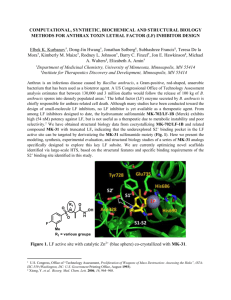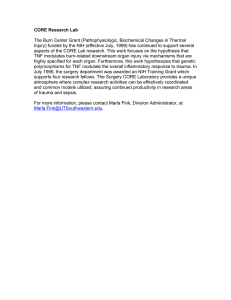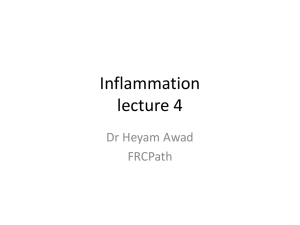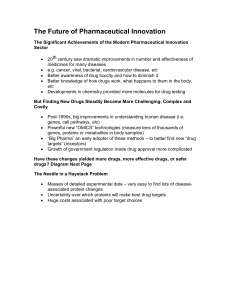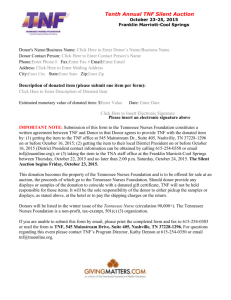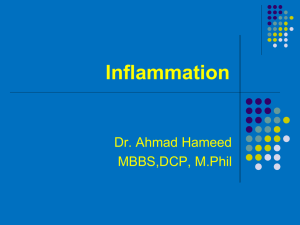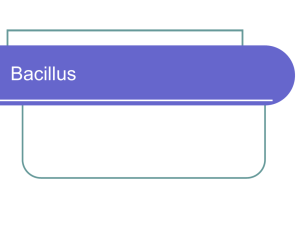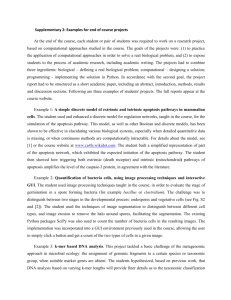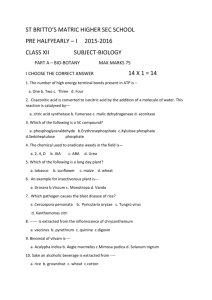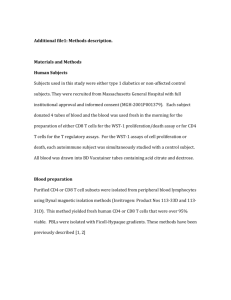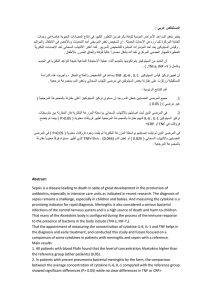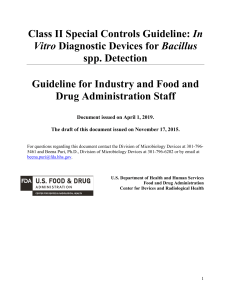Cytokine subversion by B. anthracis
advertisement
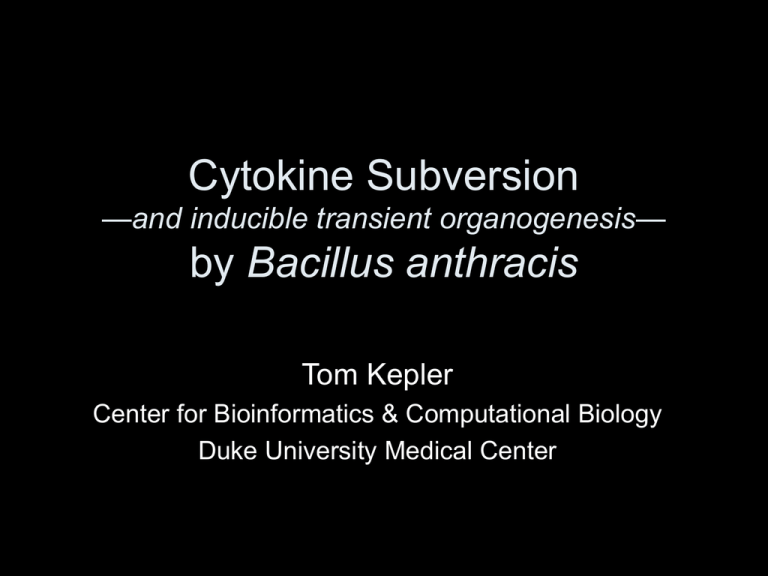
Cytokine Subversion —and inducible transient organogenesis— by Bacillus anthracis Tom Kepler Center for Bioinformatics & Computational Biology Duke University Medical Center Outline • B. anthracis • Cytokines – TNF • Spatial organization – Inducible Transient Organogenesis • Model and Results Mathematical Modeling and Category A pathogens • Little/No Human data – Naturally rare – No experimentation • Diversity among animal models Bacillus anthracis: lifecycle • Endospore – Dormant and highly resistant for decades – Upon exposure to low pH, amino acids (e.g., macrophage phagosomes), germinates. • Vegetative bacillus – Grows within the host, eventually killing it. – No host-host transmission – Upon exposure to air, sporulates. B. anthracis: biochemistry • Toxins – Protective Antigen • Heptameric binding to host cell surface receptors • Mediates entry of EF and LF into host cell – Edema Factor • ATP → cAMP • Inhibits neutrophil phagocytosis – Lethal Factor • Cleaves MAPKK • Induces ROI, TNF, IL6 MAP Kinase Pathway Cytokines • Communication molecules – Proliferation – Differentiation – Regulation of Movement • Pro-inflammatory – TNF, IL1, IL6, … • Anti-inflammatory – IL10, IL4 • Chemoattractant • Viral subversion TNF • Produced by monocytes/macrophages upon bacterial stimulation • Low dose: chemoattraction, activation • High dose: necrosis, apoptosis: Shock • Soluble TNF receptor from cleavage of aggregated receptor Pathogen subversion of cytokines • Viruses • Bacteria • Anti-inflammatory Inducible Transient Organogenesis • Germinal center – Synovial GC • Granuloma • Thymus – Transplantation observations (M.L. Markert) Lymph Node Germinal Center Mantle Light Zone Dark Zone T (paracortical) Zone Germinal Center-like structure in rheumatoid synovium B. anthracis - macrophage spatial interaction dynamics macrophage intoxicated mf bacillus lethal toxin TNF Postdoctoral and Predoctoral Opportunities at [CB]2 • Duke University Medical Center • Center for Bioinformatics and Computational Biology – New PhD program starting 2003 – Postdoctoral Fellows Sought • kepler@duke.edu • 919 681 0620
